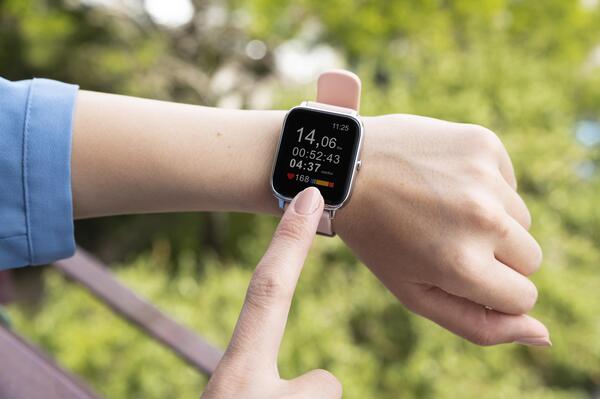Smartwatches, in particular, have emerged as a powerful tool in this realm, offering a glimpse into a future where our wearable devices can provide real-time insights into our physical well-being.
In this article, we will delve into the current state of health monitoring capabilities, with a specific focus on the potential for smartwatches to revolutionize the way we manage our blood sugar levels.
We’ll explore the challenges, advancements, and the promising future of this technology, empowering you to make informed decisions about your personal health journey.
Quick Summary
Yes, Huawei has launched the first smartwatch with non-invasive blood glucose monitoring, providing indicators of high or low blood sugar levels.
Current Limitations of Health Monitoring Devices
While traditional health monitoring devices have made significant strides in recent years, they often come with inherent limitations. From the inconvenience of frequent blood draws to the discomfort of invasive procedures, the current landscape of health monitoring can be a daunting experience for many individuals.
These limitations have sparked a growing demand for more seamless, non-invasive, and user-friendly solutions that can provide comprehensive health insights without compromising our daily routines.
This is where the promise of smartwatches shines brightly, offering the potential to bridge the gap between cutting-edge technology and accessible, personalized healthcare.
The Importance of Blood Sugar Monitoring
Blood sugar monitoring is a critical aspect of healthcare, particularly for individuals with conditions like diabetes. Maintaining stable blood sugar levels is essential for managing the symptoms, preventing complications, and improving overall well-being.
However, the traditional methods of blood sugar monitoring can be time-consuming, painful, and often require frequent visits to healthcare providers.
The ability to continuously and non-invasively monitor blood sugar levels would empower individuals to take a more proactive approach to their health, enabling them to make informed decisions about their diet, exercise, and medication regimens.
This level of personalized health monitoring can have a profound impact on the quality of life for those with chronic conditions, as well as those seeking to maintain optimal health.
The Potential of Smartwatches in Blood Sugar Monitoring
Smartwatches have the potential to revolutionize the way we approach blood sugar monitoring. These wearable devices, equipped with advanced sensors and computing power, offer the possibility of continuous, non-invasive tracking of various health metrics, including blood sugar levels.
By leveraging the sensors and technology within smartwatches, researchers and developers are exploring innovative ways to integrate blood sugar monitoring capabilities seamlessly into these compact, user-friendly devices.
The potential benefits of a smartwatch that can monitor blood sugar are numerous, from empowering individuals to take a more active role in their health management to providing healthcare providers with valuable real-time data for more informed decision-making.
Current Advancements in Smartwatches for Health Monitoring
The field of smartwatch technology has witnessed remarkable advancements in recent years, with manufacturers and researchers continuously pushing the boundaries of what these devices can do.
In the realm of health monitoring, we’ve seen the integration of various sensors and algorithms that can track a wide range of vital signs, including heart rate, sleep patterns, and even electrocardiogram (ECG) data.
While the capability to monitor blood sugar levels directly through a smartwatch has not yet been fully realized, there are ongoing efforts and promising research in this direction.
Innovative approaches, such as the use of optical sensors and machine learning algorithms, are being explored to create non-invasive solutions for continuous blood sugar monitoring.
Challenges in Developing a Smartwatch for Blood Sugar Monitoring
Developing a smartwatch that can accurately and reliably monitor blood sugar levels is not without its challenges. The human body is a complex system, and the accurate measurement of blood sugar levels requires overcoming a variety of technical and physiological hurdles.
Some of the key challenges include:
- Sensor Accuracy: Designing sensors that can accurately measure blood sugar levels through the skin or other non-invasive methods is a significant engineering challenge.
- Calibration and Personalization: Each individual’s physiological characteristics can vary, requiring robust calibration and personalization processes to ensure accurate readings.
- Power Consumption: Continuous blood sugar monitoring can be energy-intensive, posing a challenge for the limited battery life of smartwatches.
- Data Integration and Interpretation: Seamlessly integrating the blood sugar data with other health metrics and providing meaningful insights to users is crucial for effective health management.
Overcoming these challenges requires a collaborative effort between researchers, engineers, and healthcare professionals to develop innovative solutions that address the unique needs of blood sugar monitoring.
Promising Research and Development in Smartwatches for Blood Sugar Monitoring
Despite the challenges, there is a growing body of research and development focused on integrating blood sugar monitoring capabilities into smartwatches. Several leading technology companies and research institutions are actively exploring various approaches to tackle this challenge.
Some of the promising advancements include:
- Optical Sensing: Researchers are investigating the use of optical sensors, such as near-infrared spectroscopy, to non-invasively measure blood sugar levels through the skin.
- Electrochemical Sensing: Exploring the use of electrochemical sensors that can detect glucose levels in interstitial fluid, which can be correlated to blood sugar levels.
- Machine Learning and Data Analysis: Leveraging advanced data analysis techniques and machine learning algorithms to improve the accuracy and personalization of blood sugar monitoring.
- Integrated Platforms: Developing comprehensive platforms that seamlessly integrate blood sugar data with other health metrics and provide personalized insights and recommendations.
As these research efforts continue to progress, we can expect to see more tangible advancements in the development of smartwatches capable of accurately monitoring blood sugar levels.
The Future of Smartwatches as Blood Sugar Monitors
The future of smartwatches as blood sugar monitors holds immense promise for revolutionizing the way we approach personal health and chronic disease management.
As the technology continues to evolve, we can envision a future where these wearable devices become indispensable tools in the hands of individuals and healthcare providers alike.
Imagine a scenario where your smartwatch can continuously monitor your blood sugar levels, providing real-time insights and alerts to help you maintain optimal glycemic control.
This information could be seamlessly integrated with your electronic health records, allowing your healthcare team to make more informed decisions about your treatment plan.
Moreover, the ability to track blood sugar levels, along with other health metrics, could empower individuals to take a more proactive approach to their well-being.
By identifying patterns and trends, users can make informed adjustments to their lifestyle, diet, and medication regimens, ultimately leading to improved health outcomes and a better quality of life.
As the technology continues to evolve, we can expect to see the integration of additional features, such as personalized recommendations, predictive analytics, and even the potential for automated insulin delivery through connected devices.
The future of smartwatches as blood sugar monitors holds the promise of transforming the way we manage chronic conditions and empower individuals to take control of their health.
Conclusion
In conclusion, the future of health monitoring holds immense promise, and the potential for smartwatches to revolutionize the way we manage our blood sugar levels is truly exciting.
As we’ve explored in this article, the ongoing research and development in this field are paving the way for innovative solutions that can empower individuals to take a more proactive approach to their health.
If you’re interested in exploring the latest advancements in smartwatch technology and its potential impact on blood sugar monitoring, I encourage you to stay up-to-date with our blog. Subscribe to our newsletter to receive exclusive insights and updates on this rapidly evolving field of healthcare technology.
As we continue to push the boundaries of what’s possible, the integration of smartwatches as blood sugar monitors could have a profound impact on the lives of millions of individuals worldwide.
By providing personalized, real-time data and empowering users to make informed decisions, these wearable devices have the potential to transform the landscape of chronic disease management and unlock new avenues for preventive healthcare.
I’m excited to see how the future of health monitoring unfolds, and I look forward to sharing more insights and updates with you in the days to come. Together, let’s explore the remarkable potential of smartwatches and their role in shaping a healthier, more empowered future.

